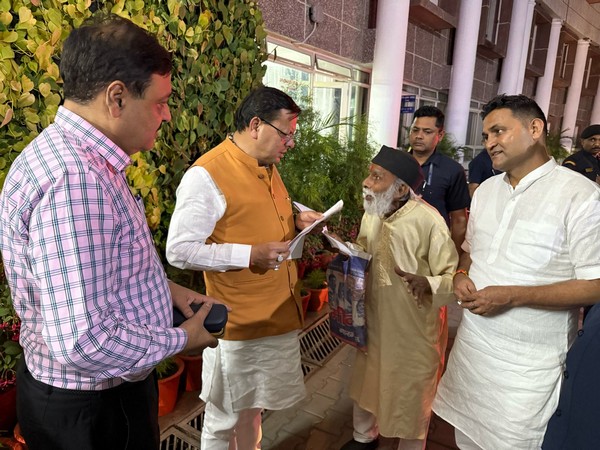No leniency even in minor accident caused by drunken driving, says SC
Jan 27, 2022

New Delhi [India], January 27 : The Supreme Court on Thursday observed that just because no major accident was reported cannot be a ground to show leniency in drunken driving cases.
"Merely because there was no major loss and it was a minor accident cannot be a ground to show leniency. It was sheer good luck that the accident was not a fatal accident. It could have been a fatal accident," the supreme court said.
A division bench of Justice MR Shah and Justice BV Nagarathna said that driving a vehicle under the influence of alcohol is not only misconduct but also an offence. Nobody can be permitted to drive a vehicle under the influence of alcohol.
" Driving a vehicle under the influence of alcohol and playing with the life of others is very serious misconduct. There are also other misconducts earlier committed by the employee, " the court said.
The court made the following observations while dealing with a petition challenging an order of Allahabad High Court in which the High Court dismissed the said writ petition asking to set aside the order of dismissal passed by the Disciplinary Authority.
The employee Brijesh Chandra Dwivedi (since deceased) was a driver posted at the 12th Battalion, P.A.C. at Fatehpur. While he was on duty driving a truck carrying the P.A.C. personnel from Fatehpur to Allahabad on Kumbh Mela duty, it suffered a motor accident with a jeep.
He was charged for having caused the accident by dashing his truck on the backside of the jeep while driving under the influence of alcohol.
On completion of the departmental inquiry, Inquiry Officer proposed punishment of dismissal, which was confirmed by the Appellate Authority.
Feeling aggrieved and dissatisfied with the award of punishment of dismissal, the employee filed a writ petition before the Allahabad High Court, which dismissed his petition.
Thereafter, he appealed before the top court. During the pendency of the proceedings before the top court, the employee died and thereafter his heirs were brought on record.
The Counsel appearing on behalf of the appellant sought leniency on the grounds that it was a minor accident.
"When the employee was driving a truck carrying the P.A.C. personnel, the lives of those P.A.C. personnel who were traveling in the truck were in the hands of the driver. Therefore, it can be said that he played with the lives of those P.A.C. personnel, who were on duty and traveling from Fatehpur to Allahabad on Kumbh Mela duty," the court noted.
However, considering his 25 years of long service and the employee has since died, the court said that it find that the punishment of dismissal can be said to be too harsh and maybe treated one for compulsory retirement.
"In view of the above and for the reasons stated hereinabove and in the peculiar facts and circumstances of the case, narrated hereinabove, the award of punishment of dismissal can be said to be too harsh, the punishment of dismissal is directed to be converted into compulsory retirement of the employee. As the employee has since died, and on converting the punishment of dismissal to that of compulsory retirement, death-cum-retirement benefits as also the benefit of family pension, if any, shall be paid to the legal heirs of the deceased employee in accordance with law and bearing in mind that punishment of dismissal has now been converted into one of compulsory retirement, " the court said.
















